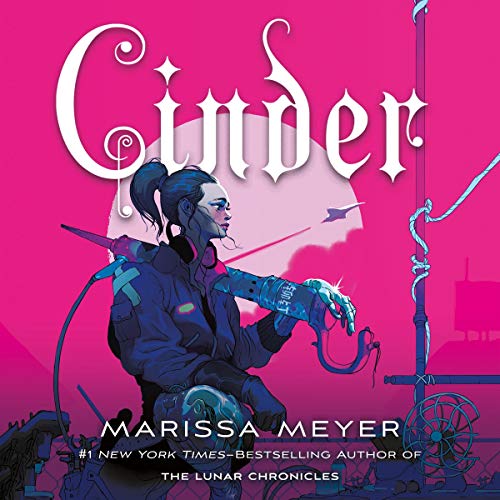Once upon a time, a cyborg in New Beijing was trying to reattach her mechanical foot. It’s not quite the way the conventional fairytale begins, but that’s the best thing about Marissa Meyer’s Cinder: it’s a completely new take on the Cinderella theme and a breath of fresh air in the YA genre.
Cinder is a mechanic working in New Beijing, though she is not just any old mechanic. She is the best in the city. One morning she is trying to attach a new foot with the help of her android Iko, when a young man in a hooded jumper approaches her stall. Cinder realises it’s Prince Kai, son of the Emperor of New Beijing and general heartthrob of the city. But don’t let me lose you there — it doesn’t all descend into romantic pulp. On the contrary, Cinder does everything she can to get rid of Kai; being a cyborg, she’s considered an inferior citizen and she tries to shake the prince off as quickly as possible. He leaves her with an android that needs fixing — his own personal tutor droid, and Cinder senses how desperately he needs her to fix it.
Cinder agrees, and takes the droid back to the apartment block her stepmother Adri owns. And ‘stepmother’ is a generous word for Adri: as a cyborg, Cinder is technically owned by her, and Adri makes sure Cinder is firmly under thumb at all times. She has two stepsisters, the haughty Pearl, and the much nicer Peony, who is delighted to show off her new dress to Cinder. Because, of course, there is going to be a royal ball and everyone except Cinder can go.
So, it’s pretty obvious how the seeds of the original fairytale are taking shape, but the setting of a futuristic, robotics-filled New Beijing adds a new dimension to the well-told tale. And then there’s Cinder: a gutsy, competent heroine who’d rather spend her earnings on a new wrench than a new dress. Unlike some other infallible heroines of YA, Cinder has vulnerabilities that give her real depth as a character. Her status as a semi-citizen, her unknown past and her loneliness bring her to life, and make her story a highly compelling read.
True to every fairy tale, there has to be a bad guy, and Cinder’s comes in the form of the Queen of Lunar. The Lunar are a race of people who live on (drumroll) the moon, and are intent on forming an alliance with the Emperor of New Beijing, which is diplomatic speak for “they want to take over the planet.” This is, unfortunately, where the book descended into a somewhat formulaic replica of a generic YA plot. It makes sense that a feature of the genre is to show children and young adults how the world works: what the difference between a good person and a bad person is, but having good and evil so basically delineated is just too reductive. There is no spectrum, no grey area for characters to face moral challenges in, and everything feels a little too black and white for the story to be totally convincing.
That said, the character of Cinder just about manages to carry the slightly lacklustre plotting as it is great fun to watch her grow and develop, and begin to take her future into her own hands. Whilst Cinder’s overall story arc is nothing groundbreaking, the Asian setting and excellent characterisation are, and this is, for the first two thirds at least, a surprisingly innovative addition to the YA genre.
~Ray McKenzie

![]() While agreeing with everything Ray has said above, I’ll say that I think I enjoyed this story more than she did, probably because I listened to it with my teenage daughter in audio format. We loved Cinder and Iko (my daughter laughed pretty much every time Iko was on stage) and thought the story was (as Ray said) an innovative and fresh take on Cinderella. It’s fun to spot the allusions to the original fairytale.
While agreeing with everything Ray has said above, I’ll say that I think I enjoyed this story more than she did, probably because I listened to it with my teenage daughter in audio format. We loved Cinder and Iko (my daughter laughed pretty much every time Iko was on stage) and thought the story was (as Ray said) an innovative and fresh take on Cinderella. It’s fun to spot the allusions to the original fairytale.
Rebecca Soler’s performance in Macmillan Audio’s edition is wonderful. We’re looking forward to reading the next book, Scarlet.
~Kat Hooper





Thanks for yet another excellent and even-handed review, Rachael! Do you think you’ll continue through the rest of the series?
This sounds like great fun. I love idea of her reattaching her foot!
Sigh. I wish the rest of the series was as good as this review. Sadly, despite gritting my teeth and trying to carry on, the subsequent books in the series just fizzled out for me.
My daughter loves this book. (She’s 13.)
Thanks for the warning, Jesslyn!